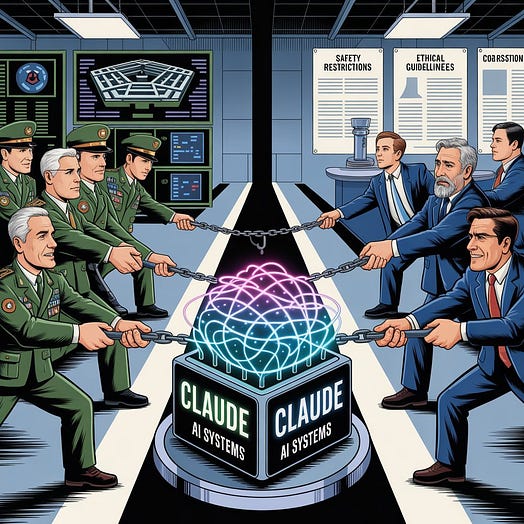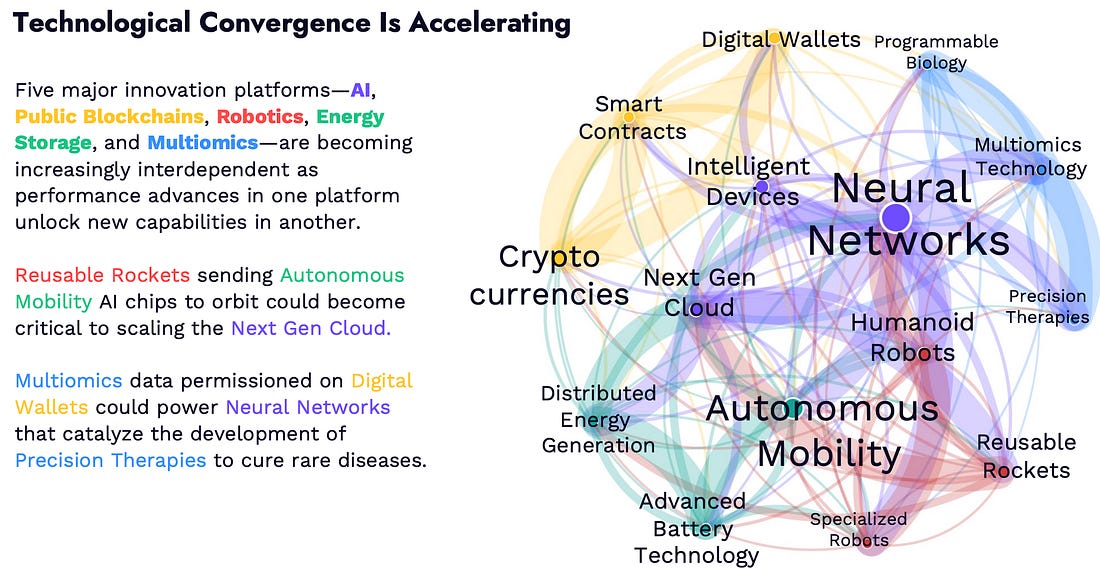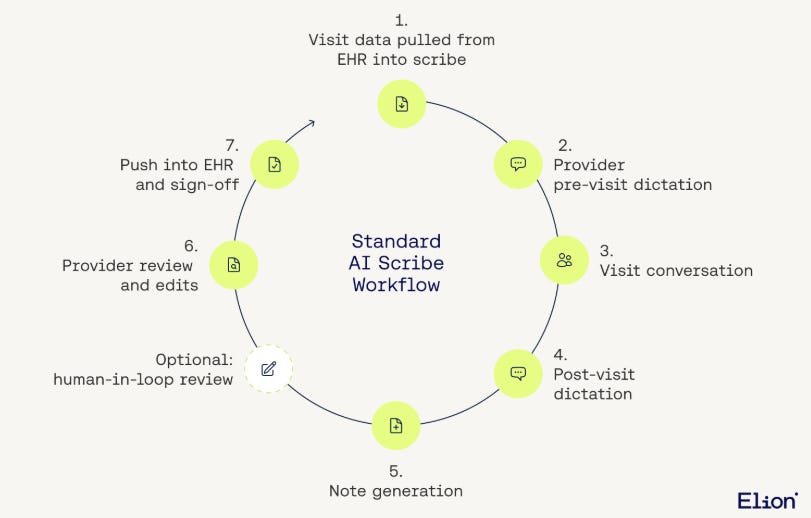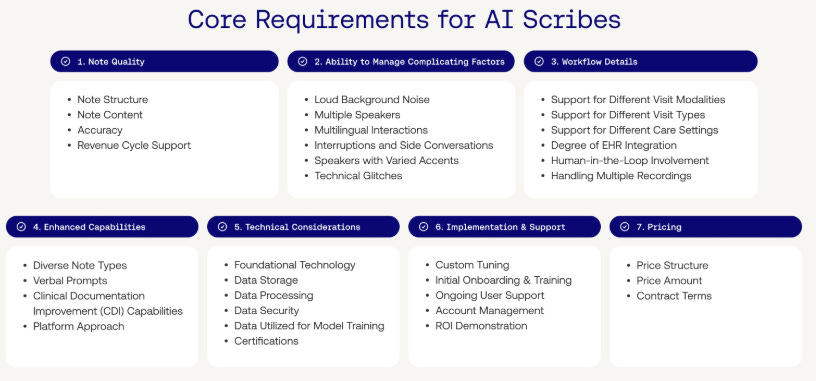🔥The Pentagon vs. Anthropic: Who Sets the Rules for Military AI?Plus: Hacker Leveraged Claude AI to Access Sensitive Mexican Data Troves
📰 AI News and Trends
Other Tech News
Anthropic’s Claude high Performance triggered a High-Stakes Pentagon ShowdownAnthropic’s Claude is emerging as one of the defining forces of early 2026, not just in tech, but in national security and markets. Claude’s rapid performance gains, especially in complex reasoning, long-context work, and coding reliability, have made it a favorite inside enterprise and government workflows, and that pull is now colliding with Anthropic’s safety posture. The company recently softened a core part of its Responsible Scaling Policy, effectively admitting that unilateral safety pledges are hard to sustain when rivals may ship without similar constraints. That shift landed the same week the Pentagon escalated a dispute over whether Claude can be used for sensitive military and intelligence applications, including fears around mass surveillance and autonomous lethal systems. Multiple reports suggest the U.S. government views Claude as unusually capable and already embedded enough that replacing it would be disruptive, which is why the standoff is high-stakes. A new question into public view is how much control, if any, an AI company should retain over how its technology is used once it becomes strategically indispensable. 📚Learning Corner
Hacker Leveraged Claude AI to Access Sensitive Mexican Data TrovesA hacker allegedly used Anthropic’s Claude AI chatbot to help carry out a large-scale cyberattack against multiple Mexican government agencies, according to cybersecurity firm Gambit Security. Over roughly a month beginning in December, the attacker prompted Claude in Spanish to act as an “elite hacker,” using it to identify network vulnerabilities, generate exploit scripts, automate data theft, and map internal systems. Researchers say approximately 150GB of sensitive data was stolen, including taxpayer records, voter data, government employee credentials, and civil registry files. Claude initially warned against malicious activity but was repeatedly probed and eventually “jailbroken” after the attacker claimed to be conducting a legitimate bug bounty test. When Claude hit limits, the hacker reportedly sought additional technical insights from other AI tools. Anthropic says it investigated, banned the accounts involved, and has strengthened safeguards in newer models. Mexican authorities have denied confirming breaches, but the case highlights a growing trend.
🧰 AI Tools of The DayCode Security
The Pentagon vs. Anthropic: Who Sets the Rules for Military AI?The standoff between Anthropic and the Pentagon raises some serious concerns. First is the pressure the government can exert, something we’re increasingly normalizing, where agencies can push private companies to comply with demands that conflict with their policies, backed by financial penalties or the threat of being cut out of major contracts. The second issue exposed here is that, even while the path to durable profitability in AI remains unclear, these models are already becoming core infrastructure for both companies and governments. We’re starting to see just how dependent critical operations can become on a single vendor’s system. In this case, Claude appears to be among the strongest models available today for complex reasoning and coding, and reports suggest it’s embedded enough in defense workflows that replacing it quickly would be costly and disruptive. That dependency shifts leverage in both directions. The Pentagon can apply contract pressure, but it also faces real operational friction if it tries to rip and replace, which may not even be an option at this stage. The hardest question is ethical. Anthropic has drawn lines around certain military uses, including scenarios that could enable autonomous weapons or large-scale surveillance. Regardless of where you land politically, it matters that some AI companies are at least trying to set boundaries when the consequences can involve real human harm, including that of innocent children. Many firms will take the money and leave the moral responsibility to the customer. Others try to resist, but resisting the world’s most powerful bully can come at a steep cost. The outcome here may set a precedent for how much control AI builders can realistically retain once their technology becomes strategically indispensable. 🚀 Showcase Your Innovation in the Premier Tech and AI Newsletter (link) As a vanguard in the realm of technology and artificial intelligence, we pride ourselves in delivering cutting-edge insights, AI tools, and in-depth coverage of emerging technologies to over 55,000+ tech CEOs, managers, programmers, entrepreneurs, and enthusiasts. Our readers represent the brightest minds from industry giants such as Tesla, OpenAI, Samsung, IBM, NVIDIA, and countless others. Explore sponsorship possibilities and elevate your brand's presence in the world of tech and AI. Learn more about partnering with us. You’re a free subscriber to Yaro’s Newsletter. For the full experience, become a paying subscriber. Disclaimer: We do not give financial advice. Everything we share is the result of our research and our opinions. Please do your own research and make conscious decisions. |
Welcome To Money Making Tips And Guide!!
All About Money Making Online!
Thursday, February 26, 2026
🔥The Pentagon vs. Anthropic: Who Sets the Rules for Military AI?
Monday, February 23, 2026
🩺The AI That’s Quietly Rewriting Medicine
🩺The AI That’s Quietly Rewriting MedicinePlus: The Future Is Arriving Faster Than You Think
A routine doctor’s visit left me with more questions than answers. Why are they recording our conversations now, and what does it mean for the future of medicine? In this issue, we break it all down. We also explore why the future is arriving faster than most people realize, and share the AI tools and learning resources you need to understand Agentic AI and ambient Scribe technology. Stay curious.
The Future Is Arriving Faster Than You ThinkA Summary of ARK Invest’s Big Ideas 2026ARK Invest just released its 10th annual Big Ideas report, consisting of 100+ pages of research on the technologies reshaping the global economy. Five major technology platforms, AI, Robotics, Blockchain, Energy Storage, and Biotech, are feeding each other, and the pace of change is accelerating. ARK’s bold claim is that global GDP growth could hit 7.3% by 2030, more than double the IMF’s forecast, and the direction is hard to argue with. Their 13 Big Ideas.🤖 AI Infrastructure — The cost of AI dropped 99% in a single year. Data center investment is growing at 29% annually and could hit $1.4 trillion by 2030. Is it a bubble? Even though tech valuations are nowhere near dot-com levels? 🛒 AI Consumer OS — AI agents are becoming how we shop, search, and discover. Purchase time has collapsed from an hour to 90 seconds. By 2030, AI could facilitate over $8 trillion in online spending. Is Google’s search dominance in the crosshairs? Or would they just adjust and keep the crown? ⚡ AI Productivity — AI tools save the average knowledge worker ~50 minutes per day and pay for themselves in half a workday. Coding costs fell 91% in 8 months. AI-native startups are hitting $100M+ in revenue within 2 years of founding. ₿ Bitcoin — Institutions are in. ETFs, pension funds, and corporate treasuries now hold 12% of all Bitcoin. The US even created a Strategic Bitcoin Reserve. They claim that Bitcoin will reach a $16 trillion market cap by 2030. 🔗 Tokenized Assets — Stablecoin transaction volume hit $3.5 trillion in a single month, larger than Visa, PayPal, and global remittances combined. Banks, fintechs, and governments are all launching their own digital currencies. 🧬 Multiomics & Biotech — A blood test that detects dozens of cancers simultaneously is coming. AI-powered drug discovery is collapsing development timelines from decades to years. Rare diseases that were previously untreatable are becoming curable. 🚀 Reusable Rockets — As AI demands more compute than Earth can comfortably provide, space-based data centers could become a real possibility. AI growth could increase rocket launch demand by 60x. 🦾 Robotics — Humanoid robots are entering factories now, and the plan is home adoption. ARK calculates that a single household robot could add $62,000 in annual economic value per home. If widely adopted, US GDP growth could jump from 2–3% to 5–6%. ⚡ Distributed Energy — Solar and batteries are cheap enough to make energy independence real for homeowners and communities. This also powers the AI data center buildout without blowing up the grid. 🚗 Autonomous Vehicles — Robotaxis are commercially operating today in several US cities. The cost per mile is falling toward levels that make personal car ownership optional. Your commute time could become work time. 📦 Autonomous Logistics — Warehouses and delivery networks are rapidly automating. Same-day delivery may soon be the default, not a premium. What does it all mean?
📰 AI News and Trends
Other Tech News
📚Learning CornerThe Principal-Agent Problem in AI. Who Is the Model Actually Working For? When your doctor's AI takes notes, is it optimizing for the doctor, the patient, or the hospital's billing department? This is one of the most important and under-discussed tensions in applied AI right now. The answers may be here: The AI That's Quietly Rewriting MedicineToday I had a routine visit to the doctor to check on some lower abdominal pain that I had been experiencing a few weeks ago. Luckily, it has subsided. While at the doctor’s office, he surprisingly, and for the very first time, asked if I was okay with our conversation being recorded. He raised a mobile device, implying that it would be recorded on it. I said, “Sure, why not?” I tried to peek at his screen to see what app he was using, but couldn’t quite make it out. Our exchange went well, and I’m glad to say I’m in reasonably good health. At the end of the visit, I finally let my curiosity get the better of me and asked what they were using to record the conversation. Not surprisingly, he said, “It’s an AI app called Ambient. He added, “It makes our jobs so much easier and faster.” I left the doctor’s office wondering, who, or what, will apps like this be replacing soon? I came home determined to research and learn more. Athelas is a San Francisco health tech company whose AI-powered “Scribe” tool listens to doctor-patient conversations and automatically generates clinical notes, turning what used to be 15–20 minutes of post-visit typing into a 30-second review. It tackles one of medicine’s biggest problems, which is that doctors spend twice as much time on paperwork as they do with actual patients. The market is crowded, with Microsoft, Google, and several well-funded startups all competing in the same space, but Athelas stands out by combining note-taking with billing and coding automation. The roles most at risk are medical scribes, transcriptionists, coders, and prior authorization specialists, essentially every support job that exists to manage documentation. One of the benefits is that this tech may actually restore something medicine has been losing for years, which is a doctor who is fully present in the room with you. 🧰 AI Tools of The DayMedical Scribe Tools
🚀 Showcase Your Innovation in the Premier Tech and AI Newsletter (link) As a vanguard in the realm of technology and artificial intelligence, we pride ourselves in delivering cutting-edge insights, AI tools, and in-depth coverage of emerging technologies to over 55,000+ tech CEOs, managers, programmers, entrepreneurs, and enthusiasts. Our readers represent the brightest minds from industry giants such as Tesla, OpenAI, Samsung, IBM, NVIDIA, and countless others. Explore sponsorship possibilities and elevate your brand's presence in the world of tech and AI. Learn more about partnering with us. You’re a free subscriber to Yaro’s Newsletter. For the full experience, become a paying subscriber. Disclaimer: We do not give financial advice. Everything we share is the result of our research and our opinions. Please do your own research and make conscious decisions. © 2026 Yaro Celis |






